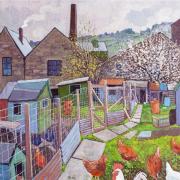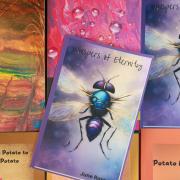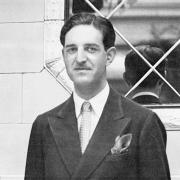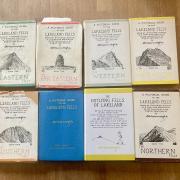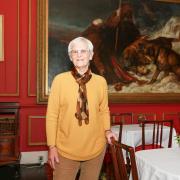Christopher P. Bacon reviews a book which has restored the fortunes of the Lancashire tripe industry
We are pleased to tell readers you can read Dr Ripley’s rambling each month in Lancashire Life, starting with the November issue. Sadly, two national newspapers saw the Tripe Marketing Board website created by the authors and lifted quotes from its chairman, Sir Norman Wrassle, and interviewed tripe sellers in Lancashire about its alleged boom in popularity.
The Times picked up this story, explaining that it was a spoof. However, like the book, fact turned was stranger than fiction when the authors visited Blackburn and talked to the owner of a tripe stall. She said sales had increased as a result of the publicity!
If you want more tripe, Forgotten Lancashire and Parts of Cheshire and the Wirral by Dr Derek J Ripley is published by TMB Books, price �9.99. It is available now at www.forgottenlancashire.co.uk, www.amazon.co.uk and selected shops.
A video from the Tripe Marketing Board
American philanthropist Warren Buffett is considered by many to be the most successful investor of the 20th century. He wisely said: ‘If past history was all there was to the game, the richest people would be librarians.’
This book by local librarian Dr Derek J. Ripley is certainly rich in strange tales, but it is not all it seems. While its title and appearance might suggest it is a local history book, open it and you will find stories which are not only stranger than fact but stranger even than a lot of fiction.
Take, for example, casino banking. According to Dr Ripley, the first casino bank in Britain opened in 1892. Wigan Casino Bank functioned like any normal high street bank, charging high interest rates on loans and paying hardly any interest on savings. To achieve a better rate of interest, customers could gamble their savings in the casino arm of the bank. In its heyday, the bank attracted investors from as far away as Ashton-in-Makerfield and Billinge.
Then there is 20th Century Spatchcock, a film studio based in Hollinwood near Oldham, which made low budget films for north west audiences such as With Ale And Pie, A Room Near Belle Vue and All Quiet On The Westhoughton Front. Film historians think they made over 20,000 films, most of which were so bad that they were destroyed, mostly deliberately.
In just one day, they made the Mancunian trilogy - The Third Mancunian, The Thin Mancunian and The Invisible Mancunian. The latter was a particularly challenging film as they were unable to find an invisible man to play the starring role, despite placing an advert in the Hollinwood Advertiser.
These are just two of the many fascinating stories told by Dr Ripley in Forgotten Lancashire And Parts Of Cheshire And The Wirral. He claims that the book is based on an archive of previously unknown documents found last year in the attic of a house in Bickershaw.
‘Some of the material in this archive is so strange that I am sure some people will question its authenticity — just as they doubted the veracity of The Hitler Diaries and Piltdown Man,’ says Dr Ripley.
Dr Ripley is either a woefully inept local historian or a comic genius. For although the book looks like and claims to be a serious work, it is in fact a wonderfully funny spoof of local history and does for Lancashire what 1066 And All That did for the history of Britain.
‘The people in this book aren’t the famous names you will have heard about,’ writes Dr Ripley. ‘It’s about ordinary people, people like you and me.’
People like JJB Henshaw, a Wigan philanthropist who made his fortune by purchasing the state of Florida from native Americans in exchange for his wife, Nellie, two tins of shortbread and a Wigan RLFC supporters’ club badge.
The book includes a short history of tripe, once the staple diet of the industrial towns of Lancashire, a cheap and nourishing food which played an important part in making the north west the engine room of Britain.
According to Dr Ripley, in 1920, there were an estimated 2,000 tripe shops and restaurants in Wigan alone and something like half a million in Lancashire.
Dr Ripley puts its popularity down to the fact that it was cheap and filling: you could feed a family of six for less than a farthing.
More important, however, was the fact that it was versatile and could be put to many other uses such as an inexpensive floor covering, upholstering material or for cleaning windows.
This is a very funny book. But be warned - it is not for everyone. If you read 1066 And All That and thought it was wildly inaccurate, don’t buy this book.
But if you have a funny bone left in your body which hasn’t been touched by arthritis, buy a copy for yourself and one as a Christmas present for a friend. They’ll be tickled pink.





